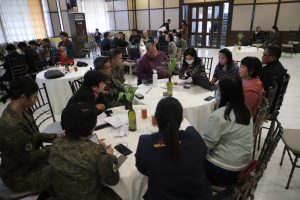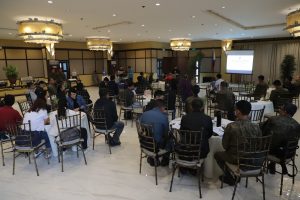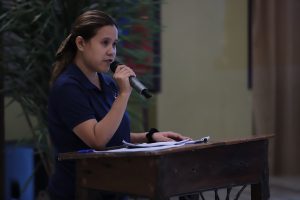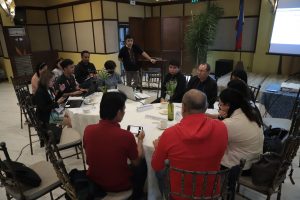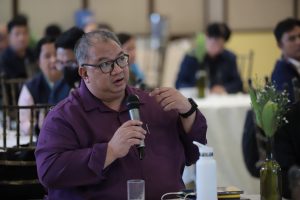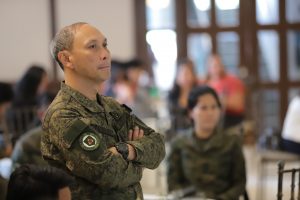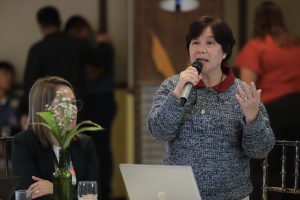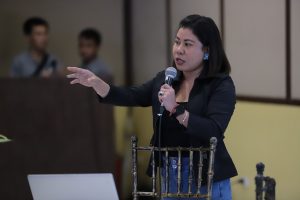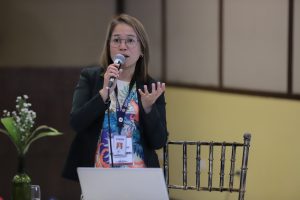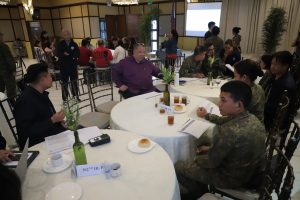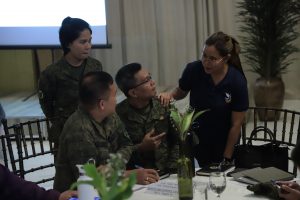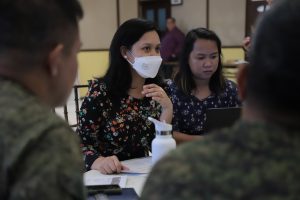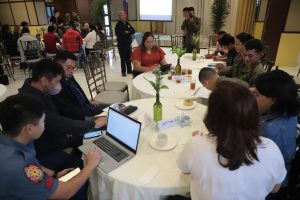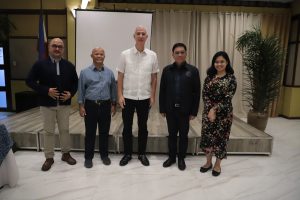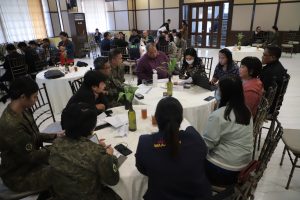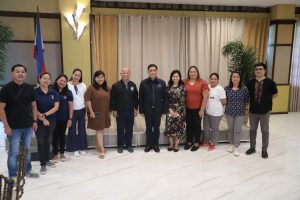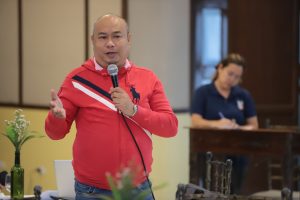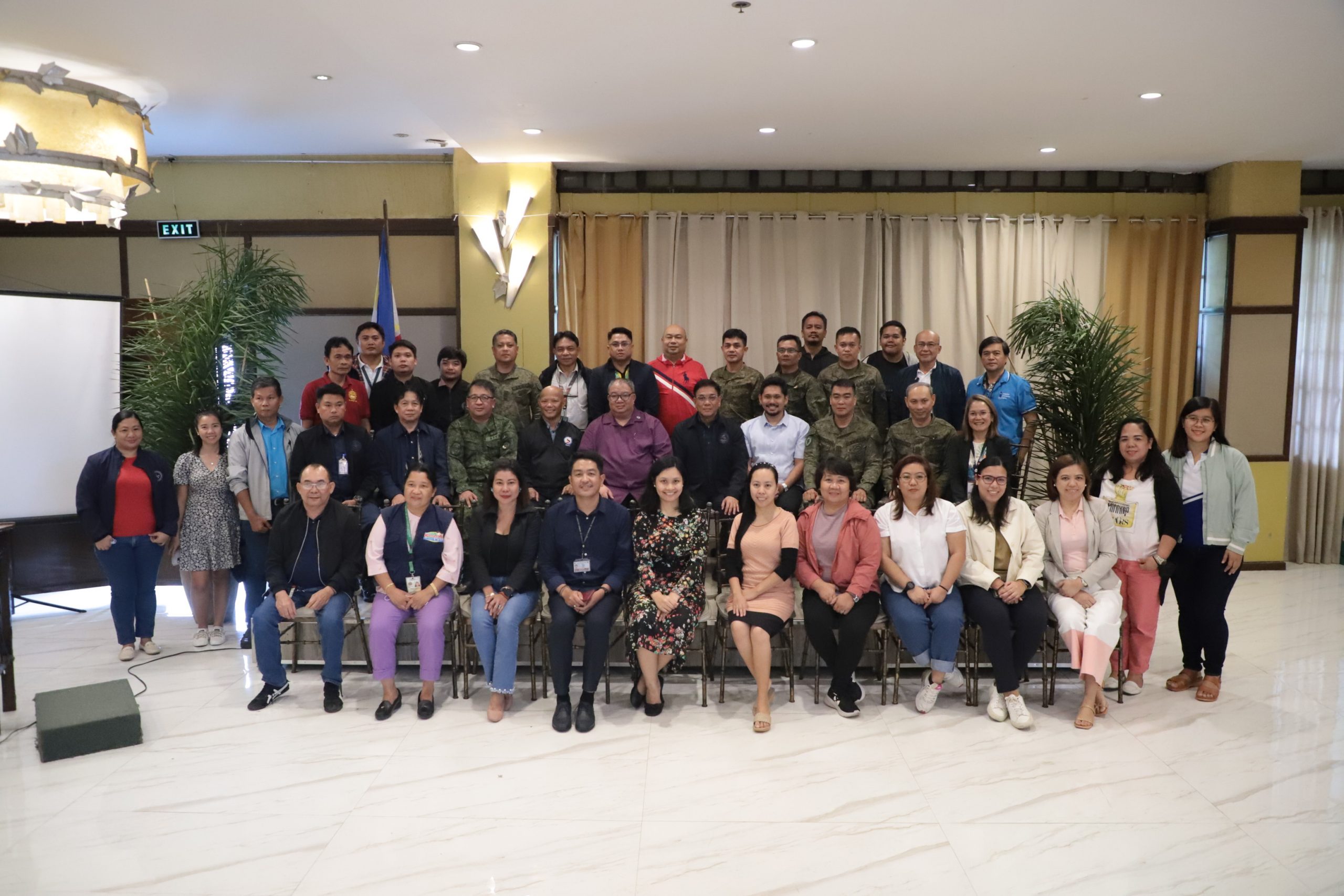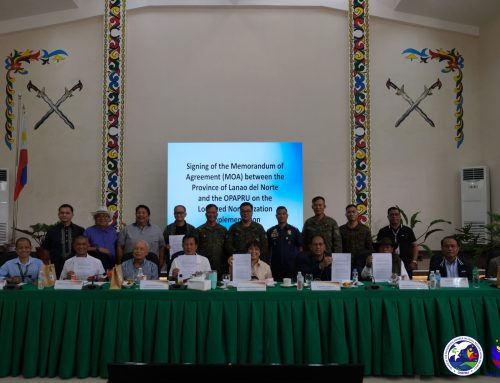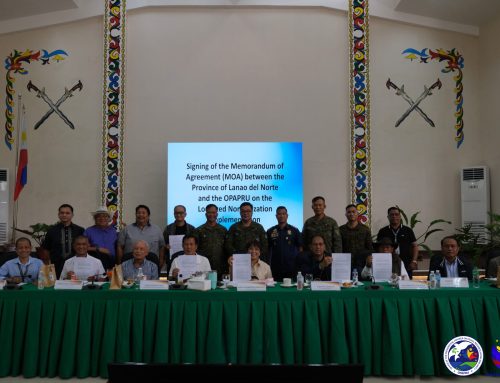TALISAY CITY – The Office of the Presidential Adviser on Peace Reconciliation and Unity (OPAPRU) and the Department of the Interior and Local Government (DILG) have vowed to intensify their efforts to sustain the gains of peace in Negros Occidental.
This, after the National Task Force to End Local Communist Armed Conflict (NTF-ELCAC) recently reported that it is now in the process of dismantling five “weakened” New People’s Army guerilla fronts in the province.
In support of these efforts, the NTF-ELCAC’s Localized Peace Engagement (LPE) Cluster, which is co-led by the OPAPRU and DILG, spearheaded a Transformation Program planning workshop here from June 22 to 23.
During the workshop, representatives from concerned national line agencies and the provincial task force crafted an integrated and multi-pronged plan that will enable the province to effectively implement the Transformation Program.
Negros Occidental is among the identified priority areas for the implementation of Transformation Program in Western Visayas.
Leaving no stone unturned
The Transformation Program aims to address the needs of former rebels, their families and communities to aid them in their transformation, and strengthen their resiliency against the recovery efforts of CTGs.
“Our updated Localized Peace Engagement Framework now includes a Transformation Program that is intended to ensure the complete transformation CTG surrenderees and former rebels and their full integration into the mainstream of society. This framework also aims to promote the development and resiliency of CTG-cleared communities,” OPAPRU Undersecretary Wilben Mayor said in his opening remarks.
“We commit to sustain the gains of peace in this province, especially now that we are seeing the development, we are now reaping the gains of peace. But despite these gains, we should not be complacent and we shall leave no stone unturned. That is why we have this workshop – so the line agencies could converge and discuss meaningful interventions for the former rebels as they re-integrate to mainstream society,” Mayor said.
During the planning workshop, NTF-ELCAC executive director Undersecretary Ernesto C. Torres Jr. reported on the peacekeeping efforts being carried out by the task force, citing the successful dismantling of five guerilla fronts in the province.
“At the start of the NTF-ELCAC, we were confronting 89 active guerilla fronts. Now, we only have one active and 21 weakened [fronts], while 67 were dismantled,” Torres bared.
“Naiiwan na lang dito ang five weakened guerilla fronts under KR (Komiteng Rehiyon) Panay and KR-NCBS (Komiteng Rehiyon-Negros Cebu Bohol Siquijor). I was also informed that the province is drafting a proscription case against KR-Panay and KR-NCBS. It will be a first in our country, na regional committee ng CPP-NPA would be proscribed. And of course, we will support that undertaking and we will cascade that to other regions for them to follow soon,” he said.
“Malapit na malapit na ang ating minimthing kapayapaan. Kaya sana, instead of being complacent because there has been peace that we are enjoying at the moment, ay maging mas masigasig pa sana tayo, and that is one of the objectives — maipag-iibayo pa natin ang ating contribution and efforts against the communist insurgency,” Torres added.
PTF-ELCAC, key to successful TP implementation
The provincial task forces, headed by the governors, take the lead in the execution of the Transformation Program, with the support of ELCAC clusters that will provide interventions relative to the program’s four components; security, confidence-building measures, healing and reconciliation and socio-economic interventions.
“We thank the OPAPRU for organizing this two-day transformation planning workshop for our peace stakeholders here in our province. The promotion and implementation of sustainable peace and development programs are embedded in our plans and development agenda. Now, we continue to adopt and pursue the Retooled Community Support Program or RCSP of the national government as a strategy to improve the delivery of our peace initiatives to end local communist armed conflict,” Negros Occidental Governor Jimeino Jose Lacson said.
According to Lacson, who also chairs the Provincial Peace and Order Council (RPOC), the provincial government of Negros has been recently cited as the most functional Provincial Peace and Order Council in the region and in the country.
“We are proud to say that our provincial peace and order council has been cited as among the most functional Provincial Peace and Order Council or PPOCs in the region and in the country. Thus, the province really commends the OPAPRU for holding this two-day peace planning conference, hopefully to enhance our ongoing peace and development initiatives in the province,” he said.
For his part, DILG Regional Director Juan Jovian Ingeniero, chairperson of the RTF-ELCAC VI’s Technical Working Group, said that ‘the workshop marks a significant milestone in their collective effort to shape the destiny of their beautiful region and its people.”
“We are aware of the challenge we face. But we also recognize the immense potential that lies within the province of Negros Occidental. Our vision this year [is] to create a sustainable inclusive and prosperous region,” he said.
“As we embark on this journey of transformation and progress, we gather here with a common purpose to help our brothers to abandon armed struggle and to become productive members of the society, then become our partner stakeholders in nation building. To achieve this, aside from joining forces, we also have to pull our gears and craft a comprehensive roadmap that will pave the way for meaningful transformation,” he added.
At the end of the program, the OPAPRU, DILG, and PLGU as well as other line agencies affixed their signatures to a ‘Pledge of Commitment Wall’ to signify their commitment and support to the Transformation Program.
“Negros Occidental will be crucial in demonstrating the Transformation Program’s success. The efforts of the provincial government in the pursuit of peace and inclusive progress are evident in our programs, services and policies. And we shall continue to do such measures until such time our collective goals and peace are achieved,” Lacson said. ###
